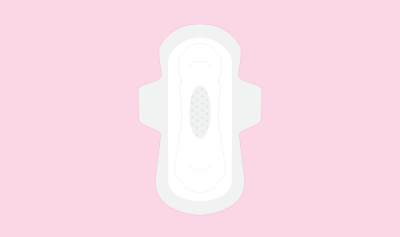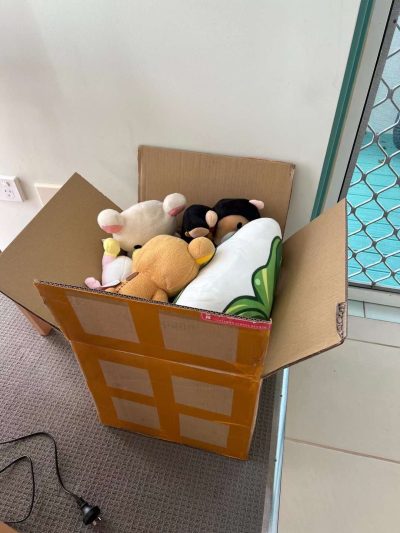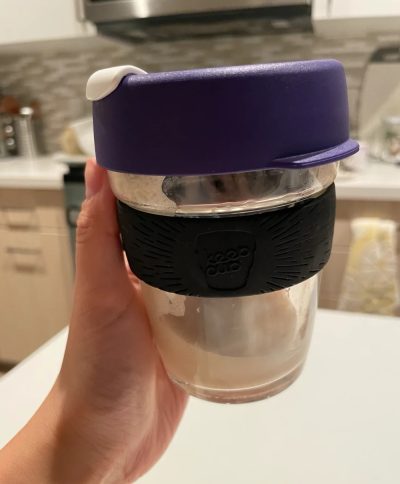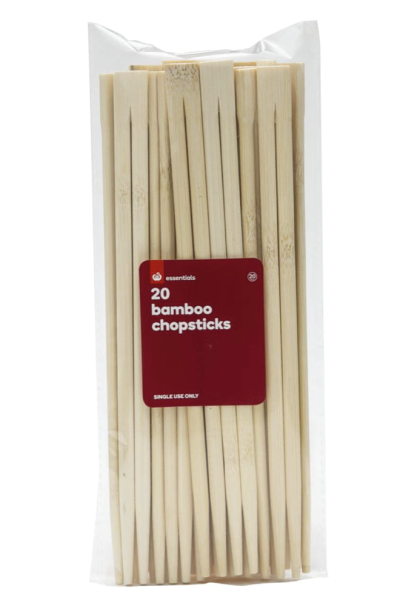Sustainability: A Series of Sustainable Reflection
Responsibility or a lifestyle?
In earlier years, I knew about the importance of recycling, now it is about Sustainability. Sustainability is the big word that practically lives in our lives now. Whilst I often ‘do my part’, I don’t think I’m doing enough. Sometimes I feel utterly guilty for using a plastic straw or throwing a cardboard into general waste. I cannot remember when I’ve developed a mentality that every time, I receive parcels I’d complain that there is too much packaging. University has also helped develop my thoughts on sustainability; making me aware of the things that I should do to help the environment and our future. In this blog, I want to reflect on the actions I make and improve my sustainability methods. Maybe you can gain some knowledge too?
Sustainability – development that meets the needs of the present without compromising the ability of future generations to meet their own needs. – UN World Commission
Reflection 1: Recyclable or General Waste?
This morning, I took my red and yellow bins out knowing that red is for general waste and yellow is for recyclable waste. It is common sense nowadays. I always threw containers and cardboard boxes into the yellow bins; however, I realised I actually don’t know what waste is considered ‘recyclable’! Are you like me who finds the colourful bins nerve racking, so you put everything inside the red one? Well, I have finally owned up to my action and researched (so simple, I cannot believe I’ve never investigated it) on what should go into each bin. Check out Brisbane City Council’s website with detailed information on what to put in your bins.
Reflection 2: Sustainabily Sanitary Pads
For my ladies out there, we all have our bloody times of the month. I watched a video from a previous student about sanitary pads. Let me be honest, I never knew pads could destroy the planet. According to Morris from Clean Up, there are 6 million menstruators in Australia and approximately 16-22 sanitary items used per period. This really blew my mind because I never thought about all the plastic consisted in sanitary pads. I researched on more sustainable sanitary brands and products that I can purchase. There are cloth pads that can be washed and reused, you can purchase them from rudi at $59.99AUD for 6 cloth pads. It is organic and vegan and eco-friendly. You can also choose to purchase a menstrual cup from TOM Organic; a brand that used pure organic cotton. Menstrual cups allow more time between emptying and can avoid first day leakage. These products are all great, however, personally I do not like the idea of reusable cloth pads and menstrual cups due to hygienic reasons. I’d much prefer to choose an Australian brand such as TOM Organic and Modibodi that uses sustainable materials. Not only are they better for the environment, but they are also safer for our delicate parts. However, I notice these sustainable brands are never on sale, perhaps they will one day if purchasing from those brands becomes a norm.

Reflection 3: My Toy Story 3
Today I sorted out my stuffed toys that I no longer needed. It was hard letting them go because I always believed Toys Story was true. I am certain my toys would talk to each other and go on adventures when I’m not around. But just like Andy, I am at an age where it is time for farewell between my stuffed toys and I. Dad drove me to our local lifeline where I’ve given my old clothes to many times before. Despite the sadness of bidding farewell to my toys, I felt good knowing they will be taken home by children who will love them. I believe donating and shopping at op shops is a very sustainable lifestyle because we are using resources we already have and reduces our own carbon footprints. Some of these op shops will also recycle unwanted clothing to create new clothes. Win-win situation I’d say.

Reflection 4: That Cup’s a Keeper
I must confess I buy an iced caramel latte every day. Despite the coffee shop I buy from uses biodegradable cup, it is still plastic. In-fact, biodegradable plastic may not be what you expected. There are loose regulations and standard on the term biodegradable. While certain plastics are created from plant-based ingredients, it is frequently unknown what kind of environment they will break down in and how long that would take. The majority of these plastics are really made from regular fossil-fuel plastics that are simply degradable. So, I started using my keep cup for work today. I had the cup for ages but was always lazy to bring it with me. Instead of buying bottled water like I always do, I boil tap water using the kettle in our shop for drinking. I must say, it felt nice bringing my own cup that looked nice and I saved $3.50 for water.

Reflection 5: Chopsticks Chops Trees
As a Chinese, chopsticks are essential items in my life. Without chopsticks, food doesn’t even taste the same anymore, how am I supposed to pick up delicious dumplings mum made without breaking them using a fork? Mum and I do not like metal chopsticks because they ruin the flavour of foods, so we use wooden chopsticks. Thus, for hygienic reasons, we replace them every couple of months. When I was about to order some new chopsticks online, I stumbled up an article from KQED, I realised I’m contributing to deforestation! Eighty billion pairs of disposable chopsticks are used and thrown away globally every year. China and Japan being the two countries that use chopsticks the most, also manufactures the most chopsticks. They harvest more than 20 million trees for making disposable chopsticks. I did some research and found that bamboo is a great alternative as it is much more sustainable due to its fast growth. It can naturally grow up to 4 feet per day without the need of fertilisers and even has the ability to regenerate from its own roots. I have ordered some from woollies and waiting for them to arrive. Hopefully, businesses can use bamboo cutleries too, not only for chopsticks, knives and forks too.

Final Thoughts
These mini reflections helped me investigate into my daily routine and developed my habit on thinking with a sustainable mind. I believe sustainability is a responsibility that everyone should take part in, and it is a lifestyle that should be incorporated into our lives. Being sustainable isn’t difficult when you actually do it, if everyone in this world contributes to sustainability, our planet will be grateful.
Reference
‘Biodegradable’ plastic will soon be banned in Australia (2021, March 9). UTS. https://www.uts.edu.au/news/social-justice-sustainability/biodegradable-plastic-will-soon-be-banned-australia
Bin items. (2022). Brisbane City Council. https://www.brisbane.qld.gov.au/clean-and-green/rubbish-tips-and-bins/rubbish-bins/bin-items
Kuhlman, T., & Farrington, J. (2010). What is Sustainability? Sustainability, 2(11), 3436–3448. https://doi.org/10.3390/su2113436
Morris, C. (n.d). How can we clean up Australia when it comes to our periods? Change is in the air. Period. https://www.cleanup.org.au/period-waste
Our Impact. (2022). TOM ORGANIC. https://thetomco.com/au/impact
Report of the World Commission on Environment and Development – Our Common Future. Retrieved from https://sustainabledevelopment.un.org/milestones/wced#
Sencer. (2017, May 10). Would You Support a Ban on Disposable Chopsticks? https://www.kqed.org/education/486307/would-you-support-a-ban-on-disposable-chopsticks
